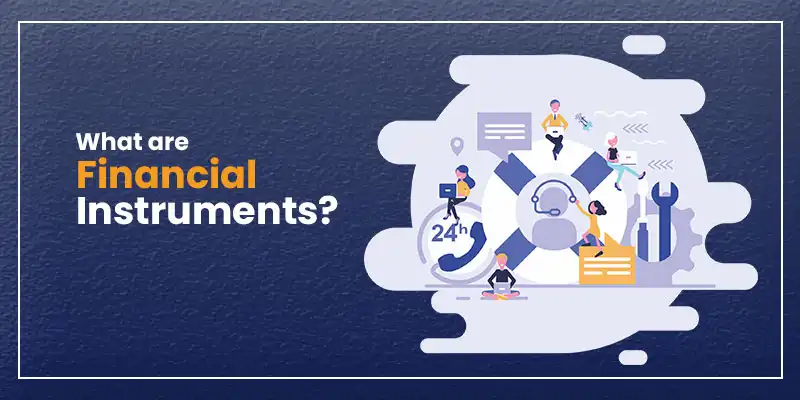Financial instruments are essential tools of the global financial system.Whether in investing, borrowing, risk hedging, or wealth management, these instruments form the foundation of financial transaction.This article explains about financial instruments, their key types, and their roles in financial markets.
Contents
- What are Financial Instruments?
- Understanding Financial Instruments
- Categories of Financial Instruments
- Purpose and Use of Financial Instruments
- Setting Up Financial Instruments
- Conclusion
- FAQs
Understanding Financial Instruments
A financial instrument is a contract or paper signifying one party’s assets and another’s liabilities. Depending on the conditions of the arrangement, these instruments can be held as investments, settled in contracts, or traded in the financial markets. It is widely employed in banking, investing, insurance, and trading;They help in transferring value and managing risk.
In another manner, financial instruments are vehicles for financial transactions that enable people and businesses to generate money, invest, or hedge against possible market fluctuations.
Read Also:An Overview of Exotic Options in Financial Market
Categories of Financial Instruments
Generally, financial instruments fall into two primary categories:
1. Cash Instruments (Primary Instruments)
These are tools whose worth is directly affected by market conditions. They consist of:
- Equities:They represent the partial ownership in a company.Equity owners are the shareholders of the company who receive dividends.They also receive voting rights depending on the share class.
- Debt Instruments:These include bonds or debentures,where investors lend capital to the issuer in return for interest income and eventual principal repayment.
- Short-Term Instruments:It includes treasury bills and certificates of deposit.It is generally characterized by high liquidity and low maturity periods.
2. Instruments of Derivatives
Derivatives get their value from an underlying asset, such as stocks, commodities, or currencies. Typical ones are:
- Options: Contracts giving the right, but not the obligation, to buy or sell an asset at a specific price within a defined period. These instruments derive their value from an underlying asset such as equity, commodities, or indices.
- Futures: Standardised contracts to buy/sell an asset at a future date at an agreed price.
- Swaps: Contracts to transfer cash flows or obligations between two parties, usually for interest rate or currency risk management, are known as swaps.
Purpose and Use of Financial Instruments
Financial instruments are used for various purposes across sectors.
- Companies raise capital through issuing stocks or bonds.
- Individuals may invest in instruments like mutual funds or ETFs to seek capital growth.
- Derivatives can help manage exposure to interest rate changes, currency fluctuations, or commodity prices.
- Additionally, short-term securities provide liquidity for investors seeking flexible access to funds.
Setting Up Financial Instruments
Individuals must open a trading or investing account with a recognised financial institution or broker before they can invest in financial instruments. Key actions are finishing KYC, knowing the instrument, and developing a clear investment strategy. New investors may explore basic instruments such as government bonds, fixed deposits, or mutual funds, depending on their financial goals and risk profile.
Read Also: Understanding Common Mistakes in Futures and Options Trading
Conclusion
Financial instruments form the backbone of investing, trading, and financial risk management. From basic savings and bonds to complex derivatives, these instruments support capital flow and investment planning. Understanding their structure and application can assist individuals in making informed decisions based on research and financial advice.
Investment in financial instruments is subject to market risks. Please read all related documents carefully before investing. The content provided is for informational purposes only and should not be construed as financial or investment advice. Consult a SEBI-registered financial advisor before making investment decisions.
FAQ
Though investors utilize them for profits, companies and governments also employ financial instruments to generate money and control risks.
Fixed deposits, mutual funds, government bonds, and ETFs are often considered relatively lower-risk options, but investors should assess their suitability individually.
A bond represents a loan given to an issuer (like a government or corporation) for regular interest, while a stock provides ownership in a company with potential for capital gains and dividends.

